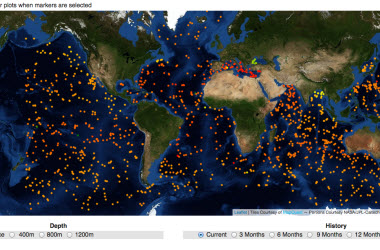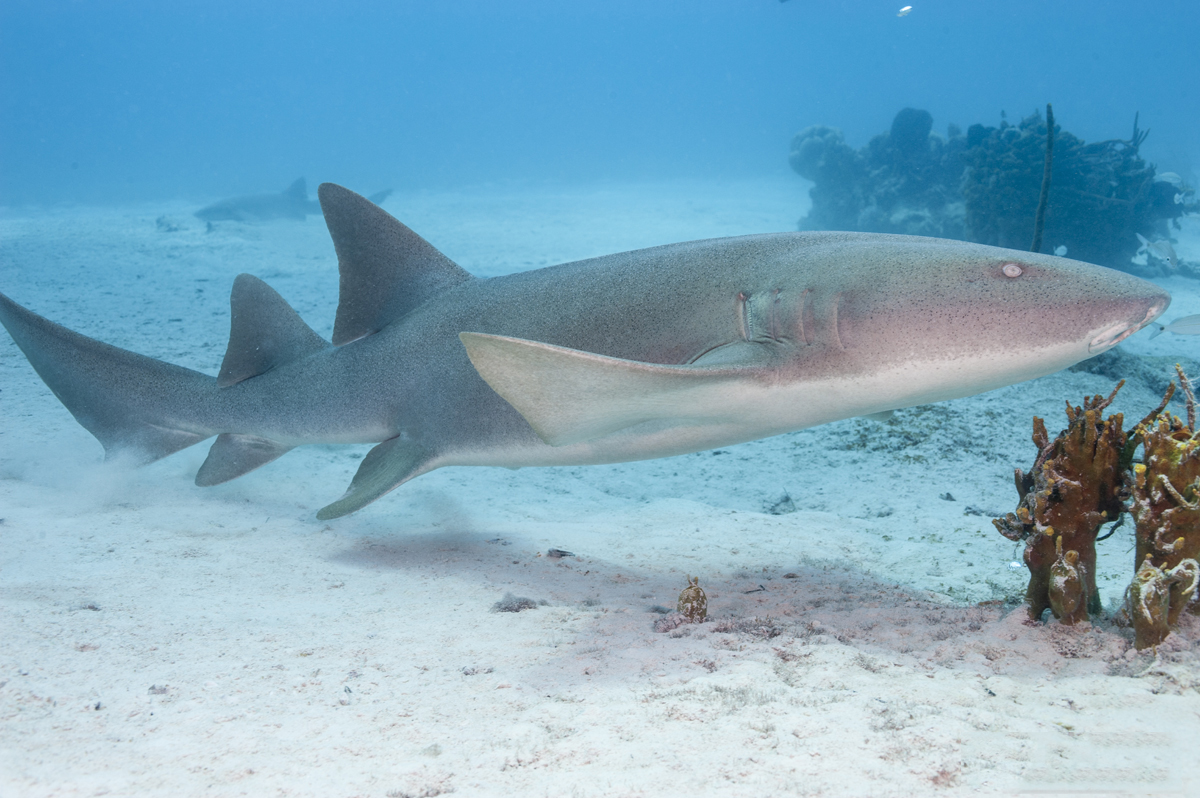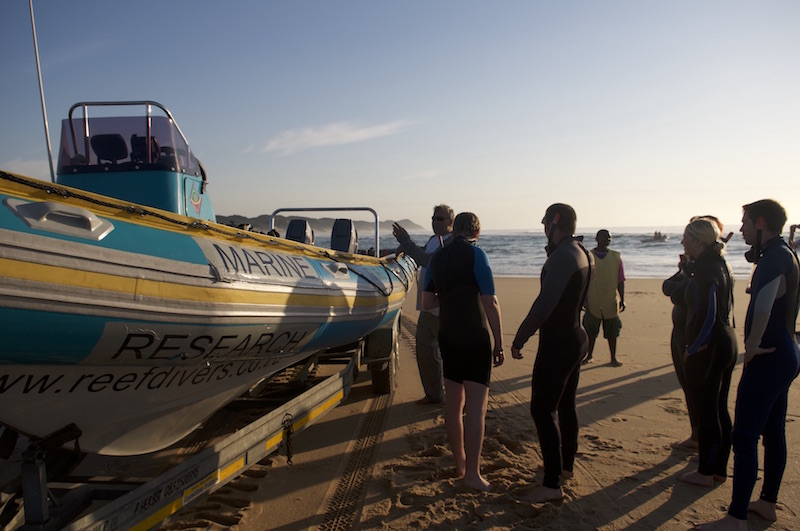June 20, 2017
It’s in the news. It’s science. It’s somewhat controversial.
While we’re certain that Earth’s climate is changing and we’re certain that Earth’s climate has changed in the past, what makes it so controversial, I believe, is that it’s now become very political; with anything political, there are sides to be taken.
However, from a scientific perspective, climate change does not require that anyone believe that it is happening or not. It does not matter whether 100% of people agree, or not, that climate change is, or is not, exacerbated by human action. 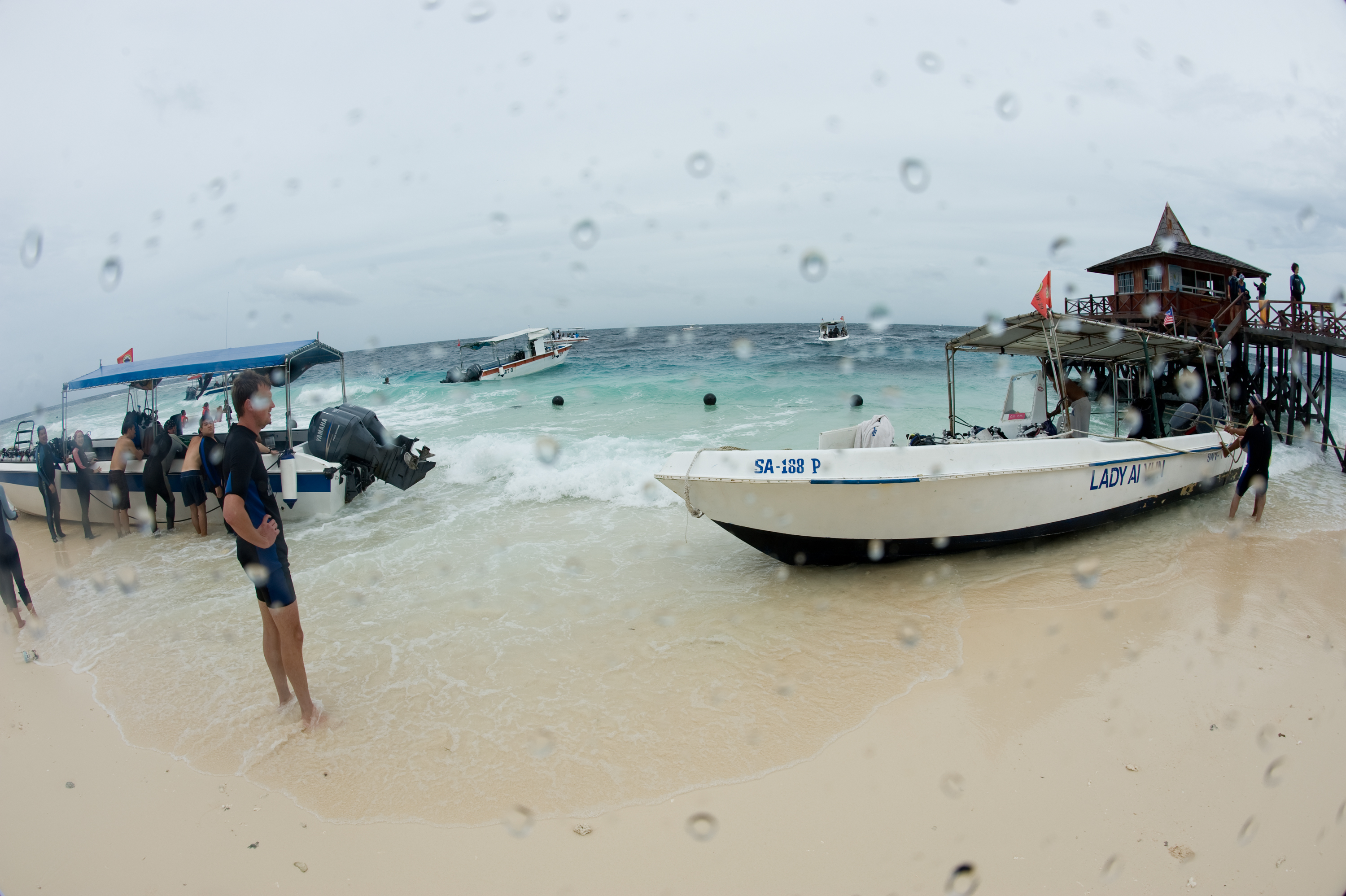 What does matter, and matter greatly, is that we are aware that Earth’s climate is changing, that we recognize many of the factors that influence it, and that we understand that there are and will be global repercussions because of it.
What does matter, and matter greatly, is that we are aware that Earth’s climate is changing, that we recognize many of the factors that influence it, and that we understand that there are and will be global repercussions because of it.
First, a quick reminder about the often confused terms: weather and climate.
Weather is what you experience today - the temperature and if it’s sunny, cold, raining, or snowing. Climate describes long-term, historical weather patterns and is used, in part, to predict the daily weather. That the weather today might be described as “unseasonably warm” is only by comparison to long-term climate data, not the weather conditions yesterday. It is important to note that comparing one day of weather data from one year to the next does not indicate climate change because temperatures fluctuate from day to day and year to year. What does reflect climate change is the recorded increase in annual average global temperatures over time, more on that in a bit.
What’s causing global temperatures to rise?
Greenhouse gases are one of the largest contributing factors. Carbon dioxide, methane, and nitrous oxide are all gases found naturally in Earth’s atmosphere. These, along with a few other natural and manmade gases, absorb heat. The sun heats our planet, keeping it from becoming a frozen wasteland. We also know that human activities, from agricultural practices to burning fossil fuels, produce these particular gases as a byproduct. Over time, the amount, or volume of these greenhouse gases in the atmosphere increases.
Greater volume of greenhouse gases in the atmosphere results in more heat being absorbed from the sun and that equals a warmer planet.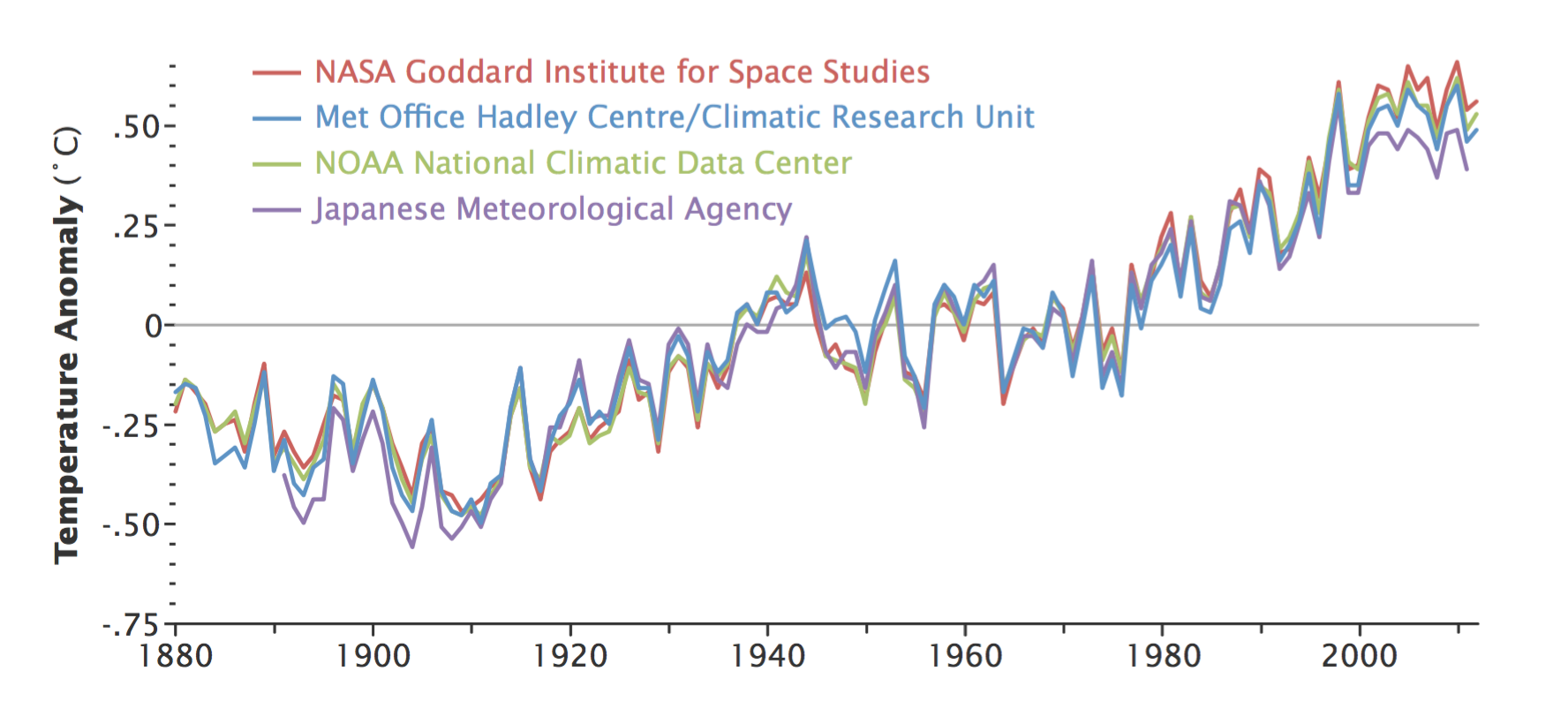
Scientists have been measuring the global temperatures on Earth since 1850, and with even greater accuracy since since the 1880s. The data collected over 130+ years tells the story. Decade after decade, Earth is getting warmer and as a result the climate is changing. (Discover how scientists study Earth’s ancient climate.)
Climate change is affecting and will continue to impact life in the ocean. We see it today. Coral bleaching events are a result of increasing ocean temperatures. As ocean temperatures rise, weather patterns will change as heat is distributed in new global patterns. 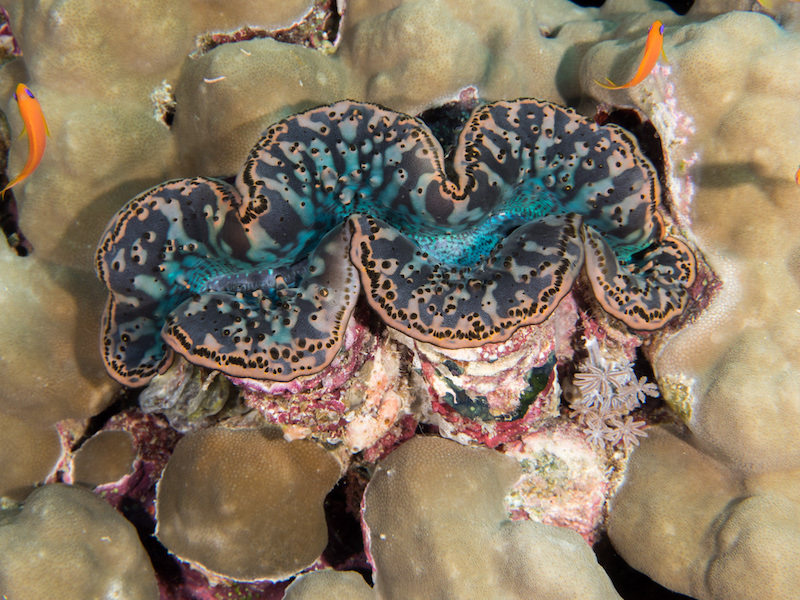 Migratory routes of several marine species will shift due to food availability and temperature thresholds. The ocean is absorbing more carbon dioxide from the atmosphere, becoming more acidic, which weakens the shells of mollusks, like oysters, and other invertebrates.
Migratory routes of several marine species will shift due to food availability and temperature thresholds. The ocean is absorbing more carbon dioxide from the atmosphere, becoming more acidic, which weakens the shells of mollusks, like oysters, and other invertebrates.
What can be done?
First and foremost, educate yourself about climate change. The more you know about the topic the more informed your decisions will be.
Start, simply, at home. Reduce your dependence on fossil fuels. Leave the car at home one day a week and carpool. Walk or bike when you can. Go vegitarian for one day a week. Leave the lights off when you’re not using them. Unplug appliances that are not in use. Shop local. Eat local. Invest in solar or wind power to offset some of your electrical needs for your home or office. Limit your reliance on single use plastic (plastic is made from petroleum, a fossil fuel). Reduce, reuse, recycle, or compost your waste. Start your own vegetable garden. Most importantly, share what you know. Educate others so that they too can make a more informed decision.
To learn more about climate change and the other perils that face the oceans today, check out the short course, Our Impact on the Ocean.


